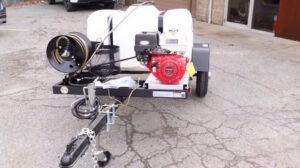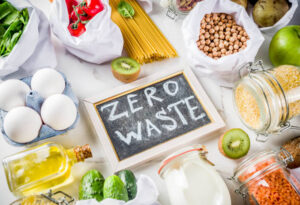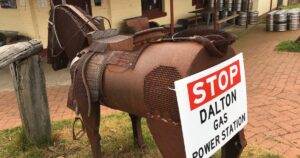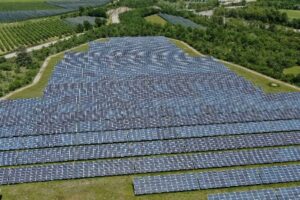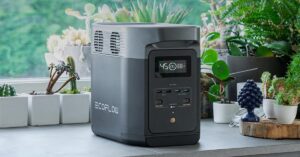How To Prepare Your Home For Power Outages?
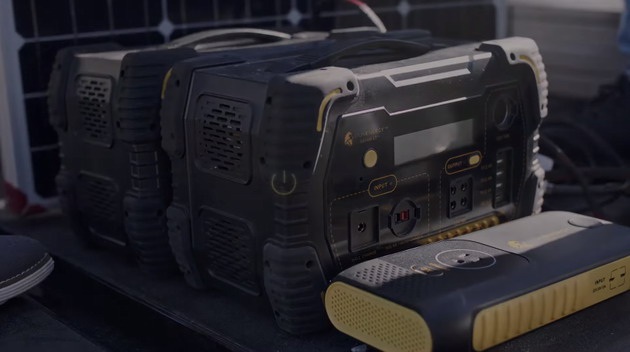
Regardless of where in the world you live, power outages can affect your home for a variety of reasons that range from power supply company issues to cable damage and even bad weather.
However, some regions are more prone to experience power outages more often as a result of harsh weather conditions. While avoiding blackouts at home is hardly possible, there are a few practical ways that you can prepare for the concern.
Portable Power
Portable power supply devices range from small phone battery chargers to compact generators. Therefore, you will be able to find portable power within your budget limitations.
Not everyone can afford large power generators that will keep their entire home powered during blackouts. Opting for small portable options, such as a portable power bank charger and other compact options will ensure you aren’t entirely without power.
Lion Energy provides a wide range of products that will be exceptionally handy during power outages.
From portable solar chargers to quiet portable generators and many more. If your budget is significantly tight, it is best to evaluate your essential power needs to establish which accessories would be best.
Determine Your Essential Consumption
Determining your essential power consumption will help you survive during a power outage. You may find that some of your items, such as your mobile phone and your refrigerator, are significantly more essential than other items in your home. Therefore, you can evaluate the estimated consumption of each of your critical items to determine what type of power supply will be necessary.
Some portable power packs can keep the average mobile phone powered for up to 18 hours. It would be most beneficial to opt for a portable power pack that allows you to power a mobile phone, a light bulb, a laptop, a TV, and other small household items requiring a small amount of energy to work.
Such devices showcase a variety of extensions to make charging varied things possible, making them diverse and useful.
Consider Eco-Friendly Solutions
Solar powered water heaters and other renewable energy solutions are often a great way of keeping most of your house powered during a blackout. The biggest complaint among homeowners when bad weather causes a power outage are complaints of extreme cold conditions or excessive heat.
Therefore, equipping your home out with renewable energy devices means you will be more prepared when a power outage will occur.
The decision to go green will also ensure your regular utility bill is slimmed down as you will not be as reliant on traditional forms of energy (the grid). This is one of the main reasons energy efficiency is becoming incredibly popular for homeowners around the globe.
Warmth That Won’t Require Power
There are a few ways to keep your home warm when the power is out. If you have a gas stove or a compact gas cooker, you can heat water for hot water bottles. On the other hand, having a fireplace in your home is one of the most effective solutions that will serve you well during winter, even if power outages are not an issue.
However, if you don’t have a fireplace, gas is usually the go-to choice for warmth that won’t require power. You will be able to find extensions for gas bottles that transform even the smallest gas bottles into indoor or outdoor heaters. When using gas for heating, it is crucial to ensure ideal ventilation is allowed within your home as fumes can cause health concerns.
Keep Light Devices
Light devices such as rechargeable lamps and flashlights should be kept in various areas of our home. When the power goes out, you will need to ensure your home is not in complete darkness to prevent any accidents such as falls and others.
Therefore, it is best to keep at least one additional light device in each room of the house to use them in case of an outage. It is also best to keep the batteries near each light device as well as batteries stocks in case you will need them.
Save Food With Ice
Your fridge and freezer can create serious problems in case of a power outage. If your generator produces less power and you don’t have an additional portable power supply to keep your items cold for the duration of a lengthy blackout you will not be able to keep the food fresh.
Rather than wonder if your food is still safe, you should use ice to keep food items in suitably cold conditions.
You can keep large bags of frozen water in the freezer and use them during power outages to keep your food fresh. This effort will not be able to save your food cold or frozen forever, although, it will make a substantial difference.
CO Detector Importance
Whether you are using a generator, gas, a fireplace, or a combination, carbon monoxide poisoning is a relevant concern. To effectively prevent health concerns that have been fatal in many instances, it is best to invest in a CO detector.
These devices are usually powered by batteries, so they will remain on even during blackouts to keep you and your family safe from toxic fumes. The detector will alert you when the carbon monoxide level reaches worrying levels, giving you adequate time to ventilate the house and clean the air.
Ensuring Generator Safety
If you can invest in a generator to power your home effectively during blackouts, even quiet portable generators and small compact generators should be used following safety recommendations.
Most of these devices will have safety guidelines included when purchasing. Your generator should be kept in an area that is adequately ventilated, especially if the generator is diesel or petrol powered.
Some smaller compact power supplies run on rechargeable battery power, rendering them somewhat safer in comparison to fuel-powered alternatives.
Larger fuel-powered generators, should also follow maintenance standards as maintenance issues can lead to devastating consequences.
When it comes to smaller power supply devices, maintenance is also essential in ensuring the device will be reliable when you need it. Regardless of your choice of power supply devices, ensuring you are following safety precautions is vital for health and accident prevention.
